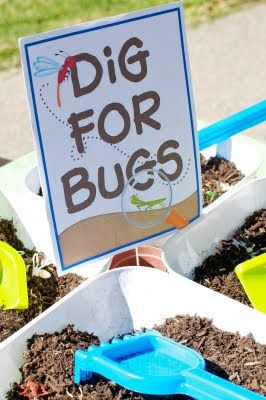Romp n' Roll Katy Blog

Every year, the kids have a productive year in school, have a fun summer, go back to school… and suddenly can’t remember anything they learned the last school year! This summer learning loss is often called the “summer slide” and refers to the loss that happens over the summer when there is no educational stimulation for children.
We have compiled a list of easy tips to prevent summer learning loss. These tips can be applied to kids of all ages and done in ways that make it fun and engaging for kids (and parents)! There are a few main areas where kids experience the most learning loss: Math, science, reading and writing. Below are specific ways to engage these subjects and avoid the summer slide.
Math
Math is one of the more forgotten subjects over the summer, usually because kids may be more reluctant to practice their math skills during this time. But with a few new ways to make it fun, kids will have no problem keeping up their math skills over their summer break!
Online Games
If your child loves to play games on the phone or iPad, some online math games may be perfect! There are many fun and engaging online games that specifically teach math principles. You can use technology in many great ways to help kids learn math and other subjects.
Board Games
If you prefer to do things screen-free, you can incorporate math skills into board games! You can use board games you already have, like Monopoly, and have them be the banker, or you can create your own games and apply math learning skills to those.
Making up Mini Math Games
If your children are not interested in playing online or board games, you can incorporate math principles into day-to-day activities with mini math games! Have kids dive for two numbered diving sticks in the pool and multiply them together, make up word problems in the car, or make every score in basketball 7 points to practice their addition.

Science
Science is also one of the more forgotten subjects over the summer, but it doesn't have to be! Activities that practice science skills are usually hands-on, which is excellent for keeping kids engaged and entertained. With these ideas, your kids will love practicing their scientific thinking.
Hands-on Activities
Most children learn the best by doing, and science activities are one of the most fun things to do! You can come up with your own in-home science projects, look up ideas, or look into your community and see what science-related activities they have going on.
Learning Trips
Go on day trips to your local science museums, zoo, aquariums, etc., and let the kids really experience the outing. Read all of the informational plaques, and ask them open-ended questions to get their mind working and thinking about what they are seeing.
Workbooks
You can find workbooks from various places, and they are a great option if going out and doing science activities isn't an option for you or if coming up with science-related activities is not your strong suit.

Reading
Reading is a more manageable activity to incorporate in the summer months because kids tend to enjoy reading more than things like practicing math. When picking out books to read, make sure it is entertaining and exciting for the child but will also stretch the child’s reading abilities with new words and ideas. Though reading is good, it is best to have them read something that is helping them grow and learn.

Family Reading Events
Try spending an hour (or 15-30 minutes if you have young children) a day without screens where everyone in the family reads a book. Doing this will keep the whole family entertained and working on strengthening their reading skills. You can also set up family competitions to see who can read the most books over the summer.
Magazine subscriptions
A subscription to a kid's magazine can be an exciting part of summer for kids. With a new magazine coming every week or month, you can read them together as a family or let the child practice some independence and read it on their own. Either way, the child can be getting their reading time in and learning something new.
Library Trips
If a subscription isn’t an option or you don’t own many books, trips to the library are a great opportunity! It gets everyone out of the house, and there are many new books the kids can choose from. Libraries also often have weekly reading activities and programs to help your kids practice their reading skills.
Writing
Writing can be challenging to incorporate into summer plans and activities, so we have provided some fun ideas. Helping your child practice their writing skills over the summer will help them prepare as the new school year rolls around.

Book Reports
As your child reads books over the summer, have them write something about it. It doesn't have to be a long, intense writing project, but a few lines or paragraphs (depending on their age) about a book they recently read can help them retain their writing and comprehension skills.
Summer Journal
An easy way to keep kids writing during the summer is to have them keep a summer journal. You can set aside time during the day or before bedtime and have them write about whatever they want! They can write short stories, write about their summer activities, or write about any big feelings they have. Plus, they will be a fun summer memory sake from your child’s point of view.
Letters to Loved Ones
If your child isn't interested in book reports or keeping a journal, you can suggest they write letters to family members or friends they don’t get to see often. Writing letters can help them feel connected to others, and of course, they get to practice their writing skills as they write about their summer plans and activities to a loved one.
Get Active
Having 60 minutes of active time a day is also vital to help your child have a productive and fun summer. Having a specific time to be physically engaged helps your child behave better throughout the day and is excellent for their health. You can spend time outside or make up a fun game inside that gets your kids moving! A great way to achieve all of these things mentioned above and have your kids be active is to enroll your child in a summer camp! Summer camps are great for keeping their minds learning and engaged, being active and making new friends.

There are many options out there, but we think our Romp n' Roll in Katy, TX camps are the best. We have created special events and camps, especially for elementary-aged kids during the summer, to keep their minds and bodies active! Your kids can practice their math, science, reading and writing skills with our creative structured programs.
Check out all our summer camp options, and sign up today!
No matter what you end up doing for your children over the summer, whether it is a few mini math games, a trip to a museum, or a summer camp, any amount of helping them learn and practice their skills will lessen that dreaded summer slide!